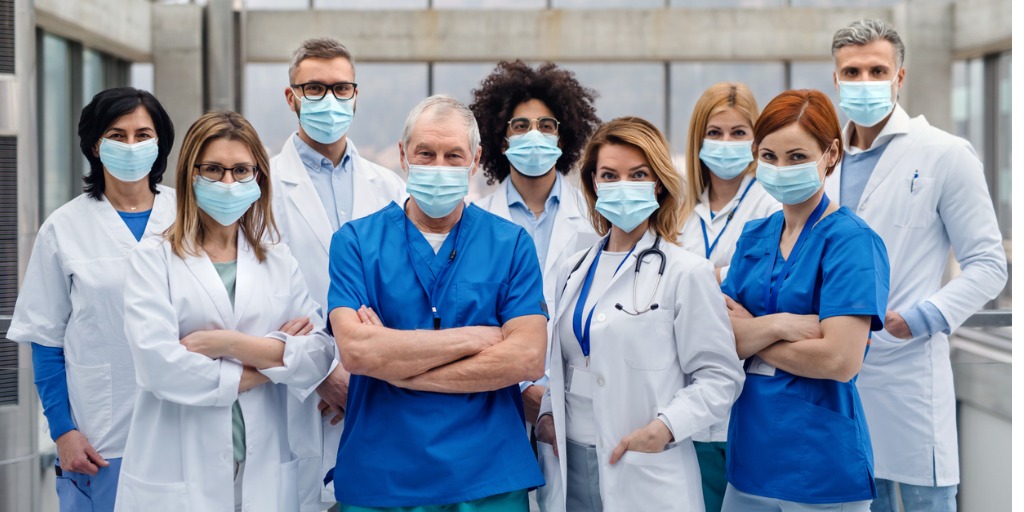New findings we've learned about COVID-19: Part 1
Now that 70 percent of Massachusetts has received at least one COVID-19 vaccine dose, the science and data drive lifted restrictions and broadening age requirements for vaccine eligibility. Based on these new changes, we had another conversation with Infectious Disease Specialist and Medical Director at AllWays Health Partners, Dr. James Hellinger. Continue reading for part 1 of our conversation where Dr. Hellinger shares his take on lifted mask mandates and restaurant dining.
 Are there any safety concerns with the lifted outdoor and indoor mask mandate?
Are there any safety concerns with the lifted outdoor and indoor mask mandate?
Vaccinated individuals should feel very comfortable not wearing a mask outside. There is almost no concern for vaccinated people outdoors, unmasked, distanced from other people because they are not sharing air. However, there is more chance for exposure if you're talking about being unmasked indoors like TD Garden or partially indoors at Fenway Park. There's more to consider, like shared, potentially dense spaces, narrow tunnels, and packed crowds waiting in long lines for entry, food, and drink. With that being said, your risk is relatively low if you're vaccinated —even if you're next to somebody with COVID-19 in one of these bigger spaces. That said, I'd still feel more comfortable waiting to avoid a very crowded tunnel and would have a mask to put on when there is a crowded space.
What's different now is that we know the effectiveness of vaccine protection; it's spectacular. In particular, the two mRNA vaccinations provide up to 95% protection both for asymptomatic and mild-moderate infection; plus, these vaccines offer superb protection from hospitalization. The cases are extremely mild in the 4-5% of rare circumstances where a vaccinated individual gets infected. In addition, the concentrations in your respiratory secretions are so low that they're probably minimally if at infectious at all; this reinforces how effective the vaccines are. If we didn't have such broad vaccination coverage, we wouldn't be lifting so rapidly and comfortably. But if we're talking about someone that's not fully vaccinated or immunocompromised, they should mask—and folks shouldn't be asking others why they're masking.
Would you say that translates to restaurants too, and would you still advise staying away from those types of places?
Well, it's up to the individual to determine their own personal risk in a scenario where they could be exposed to people with Covid-19. If you're headed into a crowded indoor setting, the number of people in that crowd drives the possible risk of Covid-19. With a bigger group, there's more chance that someone may not know they have Covid-19—and are therefore contagious. Fortunately, Covid-19 spread is at a low point right now. But it's still a personal choice, and vaccinated individuals should feel confident knowing that the guidelines were lifted based on the case data in front of us—and the number of people fully vaccinated at this point.
When you're evaluating your risk, ask yourself, if you were to get even an asymptomatic case breaking through your vaccination—who would you expose? For example, are you regularly visiting your elderly grandmother or your immune-compromised friend? And if you're returning to work, you may not know everybody's exposure and vaccination history. So, it's up to the individual to keep themselves safe. While there is even a low level of Covid-19 spread, if you recognize a setting with some risk, it is easy to mask and social distance—and that will provide another layer of protection for everyone, even if you are fully vaccinated.
Click here for part 2 of our conversation with Dr. Hellinger where he discusses COVID-19 testing requirements if you are vaccinated and advice for vaccinated parents living with unvaccinated children.
